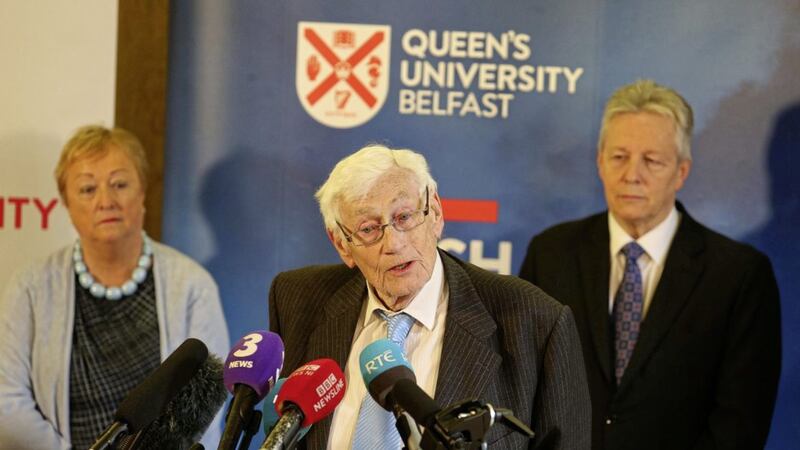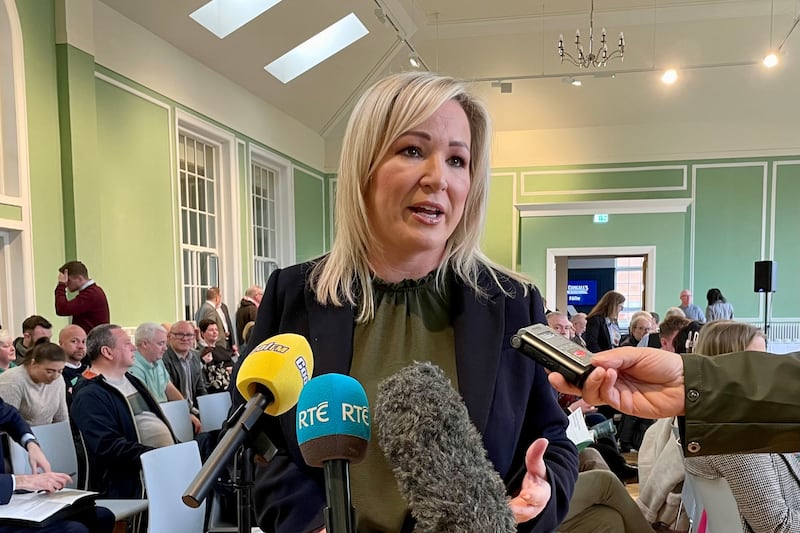Former Stormont deputy first minister Seamus Mallon has said he is sad and angry at the state of politics in the north 20 years after the Good Friday Agreement.
The former SDLP deputy leader and key architect of the landmark deal accused the DUP and Sinn Féin of creating political silos, debasing the process and "almost Balkanising" Northern Ireland.
The one-time Newry and Armagh MP was speaking yesterday at Queen's University Belfast during an event to mark the 20th anniversary of the Good Friday Agreement.
Mr Mallon said he would become "sad" and "angry" when at home watching television news.
"I watch the hypocrisies which are unbelievable and the untruths which are believable," he said.
"Politics has been debased and diminished by these two political silos which have almost Balkanised the Northern Ireland that I live in – it is the future we should be looking at."
The former SDLP deputy leader made comparisons between his former adversaries in Sinn Féin and the attitude of Brexiteers.
"There's a remarkable similarity between Brexit and Brexiteers and Sinn Féin – it's called ourselves alone," he said.
"Britain – ourselves alone a great nation once again – those two attitudes coalesce and we could learn substantially from that."
Former DUP first minister Peter Robinson, who initially opposed the Good Friday Agreement, said Brexit had the potential to cause "considerable disruption" to the region's political situation.
"We have to deal with it in a way that causes as little disruption to our political process and it has the capacity to cause considerable disruption," he said.
"I just trust the politicians of the day, and I am talking principally of the prime minister, are capable of negotiating an outcome that resolves some of these issues without some of us having to start putting up flags in order to show how British or how Irish we are in Northern Ireland – I think it is possible to do it."
Mr Robinson defended his and his party's decision to oppose the agreement.
"If we are talking about a process that has at its heart compromise, partnership, people working together to make progress, then I think the whole community should support that," he said.
"The specifics of the Belfast Agreement itself, clearly I oppose – I think I was right to opposing it; I think the unionist community validated that by their subsequent votes in the electoral process."
In a reference to the St Andrews Agreement, which the DUP signed up to, the former first minister said: "Every agreement takes on some of the characteristics of agreements that have gone beforehand."
Former Alliance leader and Stormont speaker John Alderdice called for those negotiating the UK's withdrawal from the EU to adopt an attitude akin to that of 20 years ago.
"Let me say this about Brexit – when I listen to the things that are being said in Brussels and indeed London and Dublin about what can and can't be done and absolutes of various kinds, I conclude that of those people had been around in Belfast 20 years ago there would be no Good Friday Agreement," he said.
"It only happened because there was creativity, commitment and flexibility."






